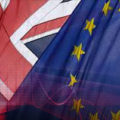The day after the ‘leave’ camp surprised the world markets with a victory that made Brexit a reality, the British Pound plummeted, along with every major stock exchange. A few days later, markets found their footing, returning to a more rational pattern of behavior. The pound rebounded slightly, and stabilized, although risks remained high. Investors who were well aware of the risks, shunned the pound, and yesterday it came crashing down once again.
Volatility remains high, and the Bank of England is ready to take the measures necessary to give the pound stability. Nevertheless a cheaper pound is not necessarily bad news for the British economy, which many believe could slip into recession following the Brexit vote. In fact, recession shouldn’t be more likely now than it was a month ago, because Britain stands to gain from a weaker pound. The devil is in the details, and it is too soon to know which kind of agreement the EU and Britain will sign once Brexit is finalized.
Although free trade agreements and economic integration with the EU have boosted UK’s economy, the most basic economic theory behind international economics, supports the notion that free trade creates both winners and losers. Free Trade agreements and custom unions are good for certain sectors of the economy and certain parts of the population. Many British citizens felt that these agreements made their life worse, and in some cases they were right.
A weaker pound, coupled with a sensible post-Brexit agreement with the EU, could actually serve to reverse some trends that generated negative sentiments in Britain. The tourism and manufacturing sectors might be the most immediate beneficiaries of a weaker pound, especially if the UK signs new trade agreements with its trading partners around the globe. This might be good news for the British middle class.
If Britain will be better off with a weaker pound, it will also benefit from stability in forex markets. The volatility that Brexit created, and the panic that ensues can threaten to spin the economy out of control. However, with the Bank of England acting promptly and robustly, the UK might be able to enjoy the economic benefits of a weaker pound while avoiding recession. Investors will have to figure out if the new agreements with the EU and other trading partners around the world, will allow the British economy to flourish beneath the shadow of uncertainty, before they make their investments. The chances are that the British economy will respond well, making premature recession forecasts little more than a knee jerk reaction.






